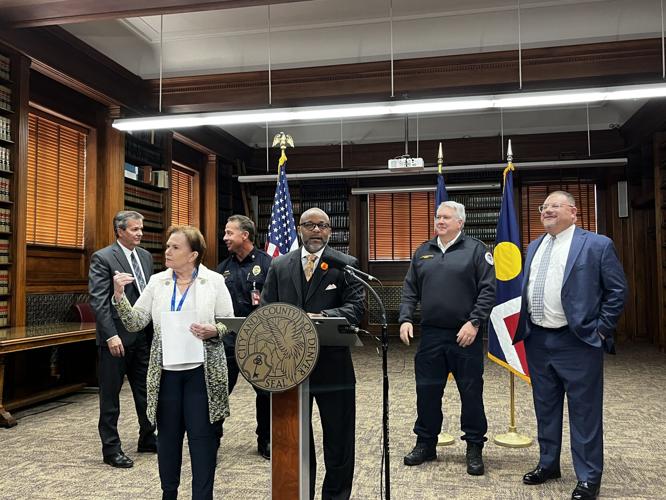Denver Health and the City and County of Denver on Tuesday announced an updated $70 million annual operating agreement with 35 changes, including the hiring of a second medical director and the expansion of first responder medical training. . The agreement is one that Mayor Michael Hancock and Denver Health CEO Donna Lynne say will renew and reinforce their focus to serving the people of Denver.
"This agreement, I believe, is a good deal for our residents and continues the long standing commitment to accountability, transparency and partnership between the city and Denver Health to benefit all of our residents," Hancock said. "It takes new steps to ensure that anyone in need of these services, no matter where they are or when they call for help, will continue to receive the best possible medical care."
The list of changes, which has not yet been made public, includes hiring a second medical director under emergency medical response. The new position, Lynne said, will help first responders in the city be deployed and distributed more effectively. This will reduce response times, an ongoing goal for both Denver Health and the city according to Lynne.
The second director will be jointly hired by Denver Health and the Denver Fire Department, which Lynne said is being done in the "spirit of collaboration."
"We've been around for 162 years, and we continue to want to serve everybody who is in need," Lynne said. "So, two medical directors: one at Denver Health and one at the fire department."
Firefighters have received enhanced training in basic lifesaving and advanced lifesaving from Denver Health for decades. But Denver Fire will soon be responsible for training its own in basic and advanced lifesaving techniques. Gary Bryskiewicz, Denver Health's chief paramedic said this transition will not happen over night.
"It's been almost 20 years that we provided the EMS education for the Denver fire department and that's been a great partnership," Bryskiewicz said. "We're gonna make sure that there's a very good, smooth transition so that the quality of medicine we provide to the people of Denver continues and without flaw."
Here are some of the major changes in the proposed 2023 operating agreement:
Adds a second Medical Director – Department of Safety (MD-DOS) at DHHA to provide support to DFD and Department of Safety Emergency Medical Response Services; selection of both medical directors will be done jointly by the City and Denver Health.
Adds that under this medical direction, DFD firefighters, will have the opportunity, with proper training, to provide BLS and ALS in parity with what DHPD provides.
Adds that DH Paramedics shall continue to be the lead paramedics on the scene - the agreed-upon protocol for DFD (the City) and Denver Health Paramedics is that upon arrival on the scene, DH Paramedics shall have primary responsibility for emergency medical services, including, as needed, transport.
Adds that after a transition phase, the DFD will assume responsibility of training DFD staff.
This list is not exhaustive, and the full agreement with all 35 changes will be made available after the bill is filed to appear before City Council.
One of the challenges facing Denver Health is hiring. Lynne went so far as to say "we have an employment problem," highlighting competitors in other districts who can pay more money.
"We often have to hire people into jobs at a higher salary than somebody that's got experience, and that's not right," she said. "There's a bidding war out there right now for some of this talent."
This "churn" is not in the cities interest, nor in Denver Health's interest, according to Lynne. However, there were no immediate solutions on the table and Lynne said Denver Health and the city will investigate how to retain current employees and attract new ones.
The same issues weren't as deeply felt by the Denver Fire Department, but Chief Desmond Fulton acknowledged there are challenges.
"We have incredible women and men that that selflessly serve each and every day. We don't have as much of an issue attracting people, but we need to do a better job of making sure that we keep the people we have," Fulton said.
Those working at Denver Fire are a valuable resource to the department, Fulton said, and making sure their selfless service is valued and appreciated is critical. But the city is changing, and as the city evolves, so too will the requirements of Denver' firefighters, he said.
The agreement shared by Hancock and other leaders is a proposal and must be approved by the Denver City Council before it takes effect. Council will likely not consider the bill until their Nov. 28 meeting.








